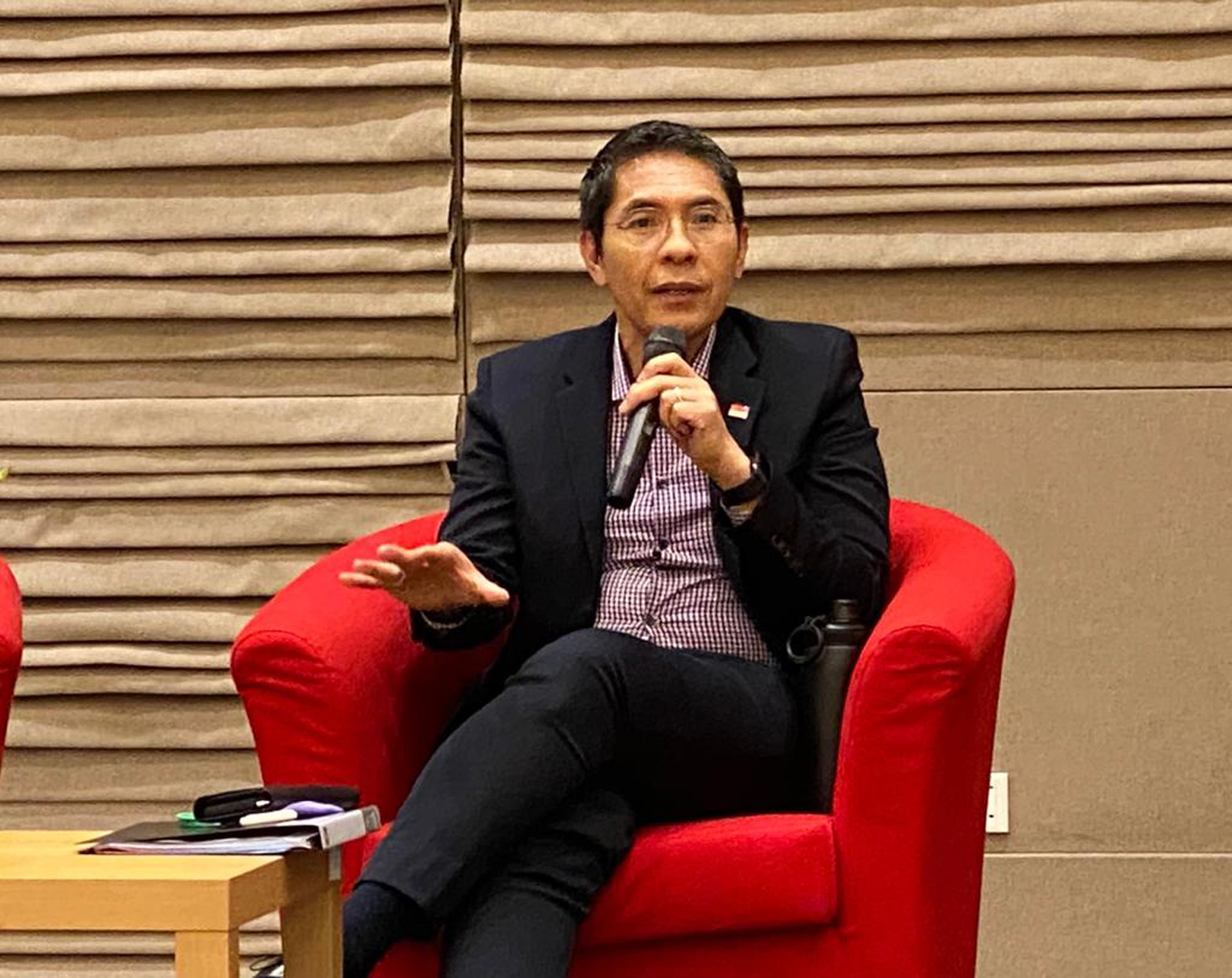Social workers can impact policy with respectful advocacy: Maliki Osman
Sign up now: Get ST's newsletters delivered to your inbox

Minister in the Prime Minister's Office Maliki Osman said it is important for social workers to understand the intent of the policies.
PHOTO: ERWIN YUHANIS YUNAHAR
SINGAPORE - It can be frustrating for social workers to hit a roadblock when appealing to government agencies to extend help to their clients or for certain policy exceptions.
But instead of viewing these agencies as adversaries, it is important for social workers to understand the intent of the policies and to advocate for clients in a way that is reasonable for society, said Minister in the Prime Minister's Office Maliki Osman on Tuesday (March 15).
He spoke about how social workers can impact policy at a seminar organised by family violence specialist centre Pave, held to mark Social Work Day. The seminar was held at The Grassroots’ Club in Ang Mo Kio.
Social workers should understand and explain policies to clients, said Dr Maliki, who is a trained social worker and who taught social work at the National University of Singapore before entering politics.
When a policy waiver or change is needed, they should work on building a case for it, he added.
"The system is put in place based on certain values of society: One, we want the family to be responsible for looking after fellow family members, and two, prudence in spending government resources, to be fair to everybody in the society," he said.
For instance, anyone who has sold a Housing Board flat cannot rent a unit from HDB until 30 months later.
Dr Maliki cited a case where a couple had tried to abuse the system by asking social workers to get a rental flat for their elderly parents so they could rent out a room in their home to get an income.
This debarment period is in place to "put friction" on the allocation of heavily subsidised rental flats, to give priority to those who have not had a rental flat before.
But social workers can impact policy, said veteran social worker and Pave founder Sudha Nair.
When social workers advocate for clients respectfully, understand the authorities' point of view and come to a compromise, the authorities will listen and make changes - as she has seen in her 30 years of experience in the field of social work, she said.
Dr Nair gave an example of how the Government changed the legislation within five months after hearing the story of a woman who was badly abused by her lover but could not get protection as she was not married to the abuser.
Previously, unmarried victims could not apply for a personal protection order under the Women's Charter, and it took some time to get protection through a magistrate's complaint or under the Protection from Harassment Act (Poha).
Amendments to Poha were passed in 2019 to include protection for unmarried partners.
Pave had also brought another woman's struggle of having to go through a long process to report her case to the police and testify in court.
The late judge Richard Magnus - who died on Monday - made it easier for victims by letting them attend court through a video call, instead of having to make the trip down.
Dr Maliki also said that as a social worker-turned-politician, he advocated improving the employment rates of former convicts - now, some former convicts can have their criminal record erased if they do not reoffend for five consecutive years.
Commending social workers for their efforts, Dr Maliki urged them to take care of themselves so they can take care of others, assuring them that the authorities would continue looking at improving their welfare.


